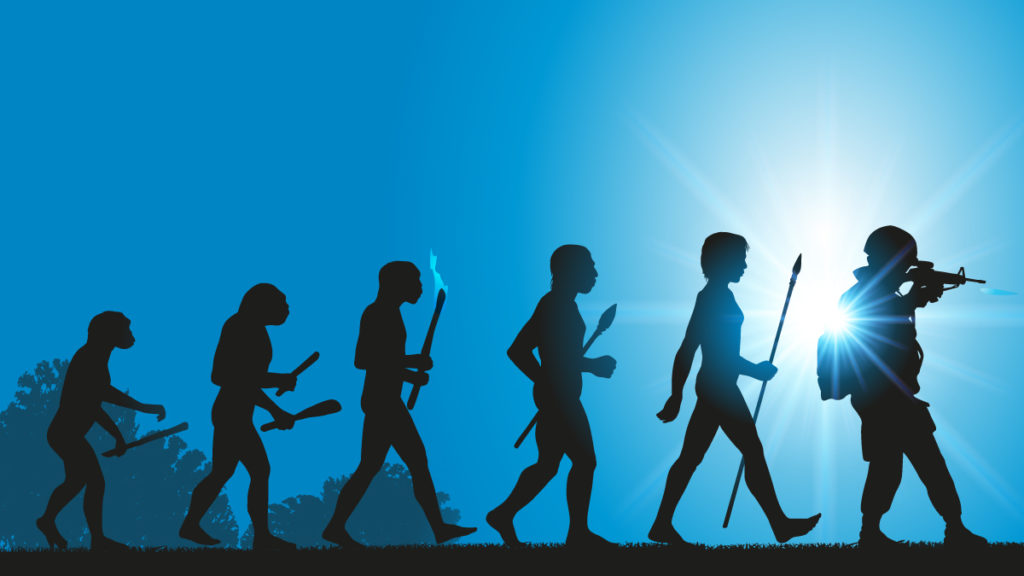Humans are getting more and more peaceful. Violent deaths from all causes (murder, war, etc.) have declined massively throughout human history.
But to what do we owe this increasing peace? Enlightenment philosophy? Commerce? Or the rise of governance by states?
Harvard social psychologist Steven Pinker’s book The Better Angels of Our Nature: Why Violence Has Declined provides a magisterial, comprehensive, and generally persuasive explanation of the peacefulness phenomena, yet the book contains a big omission.
Pinker claims — but fails to prove — that early states significantly increased human welfare by reducing the rate of war death.
In his attempt to make this argument, Pinker compares the rates of war death in stateless societies, prehistoric and contemporary, to state societies, mostly from the 20th century. The rate of war death was three to four times as high in the stateless societies as in the state societies.
There is one big problem with this comparison: can we really believe that the only salient difference between Neolithic peoples or tribal Papuans and 20th-century Europeans is the existence of a state? What about commerce? What about Enlightenment rationalism?
In fact, later in his book, Pinker supplements his state-pacification-process argument with a humanitarian-process argument about the role of commerce and growing empathy (due in part to Enlightenment philosophy) in spreading peace from the 18th century onward.
But Pinker doesn’t provide the relevant comparison for evaluating the role of the state: the rate of war death in prehistoric stateless societies versus the rate of war death in prehistoric state societies.
Pinker might fall back on the data showing that the rate of violent death in medieval and early-modern Europe and in 15th-century central Mexico was still below that of prehistoric and contemporary stateless societies. (These figures include homicides, not just war deaths.)
But medieval and early modern Europe still had access to the legacies of Christianity, Roman law, and the long-distance trade made possible by medieval fairs and the navigation technology of the time. Central Mexico under the Aztecs was also a commercial society with trade, navigation, and division of labor.
We know that these factors probably had some pacifying effect, however limited. And while the state may well reduce the rate of private violence, that leaves unsettled the question of whether it increases or reduces the rate of death from civil and external wars.
States come from conquest.
Further, there is an important conceptual problem for the claim that the rise of the state improved human welfare by reducing violent deaths. If the state were such an obviously desirable technology, why wasn’t it adopted everywhere voluntarily?
If the state were such an obviously desirable technology, why wasn’t it adopted everywhere voluntarily?”]
After all, early states arose almost exclusively out of conquest, as Pinker concedes. They started as roving bands of armed robbers, who eventually found that converting robbery into regularized taxation would destroy less wealth and generate more revenue over the long run. Autonomous peoples do not go into “subject” status willingly. As Pinker himself puts it,People in nonstate societies also invade for safety. The security dilemma or Hobbesian trap is very much on their minds, and they may form an alliance with nearby villages if they fear they are too small, or launch a preemptive strike if they fear that an enemy alliance is getting too big. One Yanomamö man in Amazonia told an anthropologist, ‘We are tired of fighting. We don’t want to kill anymore. But the others are treacherous and cannot be trusted.’” (46)”]
Pinker interprets these comments as establishing the reality of a security dilemma, in which each side is better off fighting given what each other side is doing, even though all would be better off if all sides disarmed.
If the security dilemma is such a horrible fate, why didn’t the Yanomami simply submit to one of the other tribes? Why keep fighting? If you don’t fight anymore, your war deaths will be zero. Presumably, the reason is that the Yanomami would rather run the risk of dying in battle than accept the certainty of being enslaved. General John Stark of New Hampshire might have been expressing a universal human impulse when he said, “Live free or die; death is not the worst of all evils.”
If death is not the worst of all evils, or if states actually increase war deaths relative to stateless societies with similar economies and philosophies, advocating a state – maybe even a world government to end anarchy between states – may be a bad way to advance human welfare.



